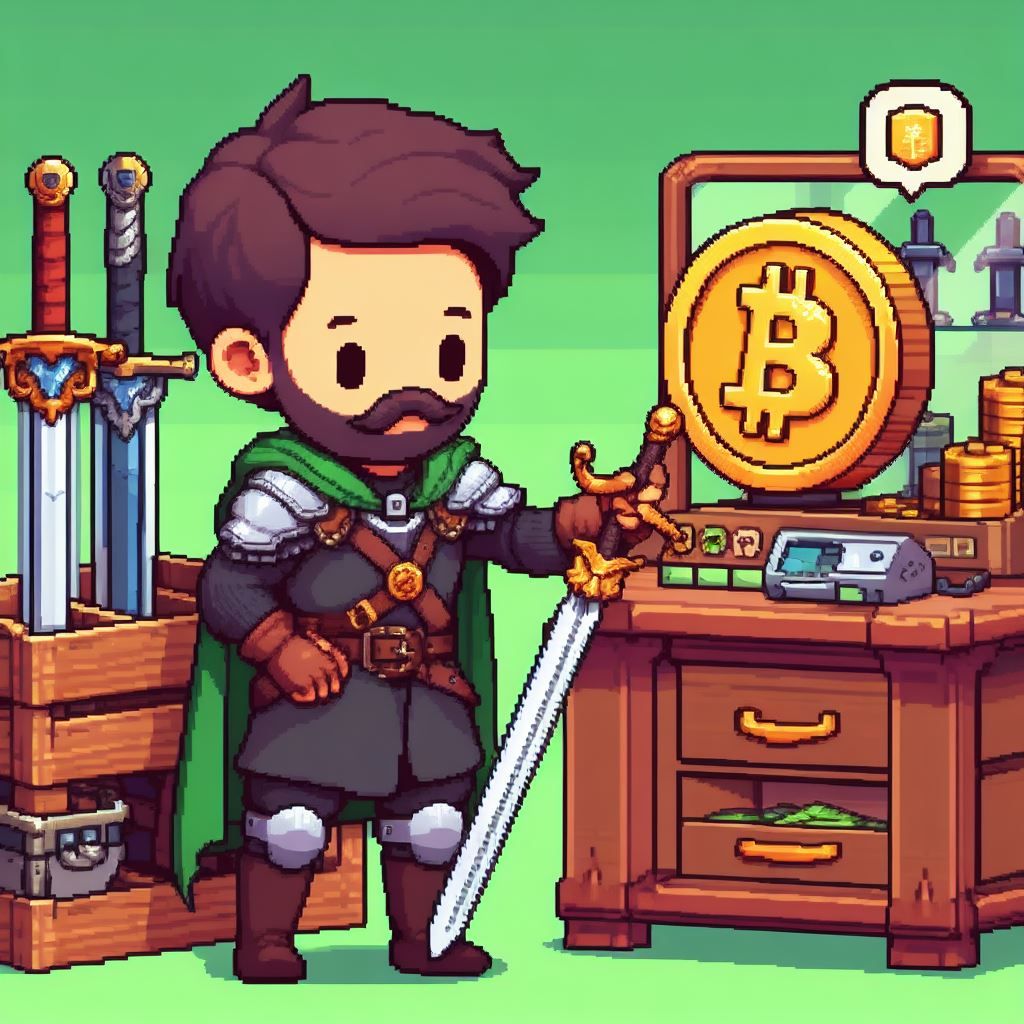After researching play-to-earn games I found out that many of them have collapsed or are on the verge. Let’s find out why.
The term play-to-earn is a concept that is increasingly present when the topic involves cryptocurrencies, blockchain, and games. An integral part of the so-called Web3, play-to-earn games gathered attention last year, but many have already declined.
Play-to-earn games represent the third generation of the gaming economy. We had pay-to-play games, where we purchased physical media, the free-to-play generation that came with mobile gaming, many of those mobile/online games could also be called play-to-win, since you could only compete at a high level if you spent money on the game, and now, we have play-to-earn games, which, translated literally, mean "play to earn." This is only possible due to blockchain technology, enabling an economy based on crypto-assets that develop an economic architecture within the game ecosystem. Whether it's burning items to create new weapons, swords, or shields, or generating new characters, players can buy these assets from each other to progress within the game.
My attention to this topic was last week when I came across Ragnarok Landverse, a new server of one of my favorite online games ever. To play on this server you need to set up a metamask account before registering. The game is described as a blend of the nostalgic charm of Ragnarok Online with web3 gaming features, providing players with a decentralized platform to generate, possess, and exchange in-game items as Non-fungible Tokens (NFTs). As outlined in the whitepaper, this fusion introduces innovative systems, including a cryptocurrency/NFTs economy. This infusion adds a new competitive dimension to the traditional Ragnarok Online.

I was very interested to see a game that I played a lot in my childhood united with a topic in which I am very involved. But after researching play-to-earn games I found out that many of them have collapsed or are on the verge of a breakdown. There are some reasons why many of those games like Axie Infinity and Stepn had their markets crash:
1- Bad Gameplay
Gameplay being boring or full of bugs became very common in play-to-earn games. Ofen developers place much of their effort on the earning mechanics leaving the gaming experience in the background. People play games to have fun, challenge themselves, and socialize with friends/strangers. Nobody wants to spend their free time playing a boring game, even if it has financial compensation. If we take as an example Ragnarok Landverse, it's possible to perceive that beyond the new crypto economy, the game is the same that was launched almost 20 years ago.
Similar sentiments apply to Axie Infinity, a game initially hyped for its groundbreaking web3 economy. However, it eventually fell behind due to repetitive gameplay and a lack of updates. Looking beyond the gameplay there are also a lot of complaints about slow loading times, unfriendly interfaces, and frequent bugs in those play-to-earn games, signals that also contribute to the vision that the gaming experience is not the main concern of developers.

2- Poor community engagement
Play-to-earn games frequently bet on creating a strong community to sustain their growth. Yet, when the game fails to foster a sense of community, it becomes very hard to maintain its players, and this seems to happen most of the time. Many people stopped playing play-to-earn games after getting some financial compensation.
Players must experience a sense of connection with other players and with the environment to continuously engage with a game, like what used to happen in the heydays of World of Warcraft.
3- Market Saturation with unrealistic expectations
The popularity of play-to-earn games was also a factor in the downfall. The market became saturated with numerous options, leading to intense competition for players' attention. This happened to the point that even games with good ideas had a lot of difficulty in gaining traction.
Players' attention was often caught when marketing strategies promised substantial earnings/rewards. Many of those promises were revealed to be unreal, creating a bad image of this type of game.
Great video about the fall of Axie Infinity and other play-to-earn games
Moving Foward
Play-to-earn games experienced a surge in popularity, only to swiftly lose that momentum. Developers did not prioritize in-game mechanics, thinking that only the promised rewards would hold players. Successful games must prioritize engaging gameplay, create a positive user experience, foster a strong sense of community, balance in-game economies, maintain transparency, navigate regulatory challenges, and manage player expectations to build and sustain a successful play-to-earn gaming ecosystem.
Do you think there is still space to revolutionize the play-to-earn gaming industry? Leave a comment below!






Comments ()